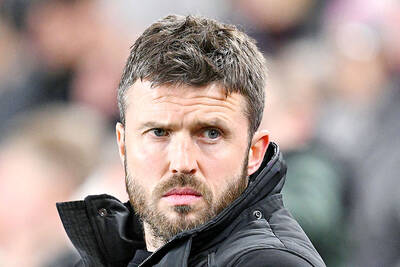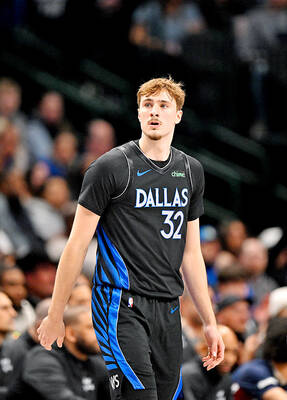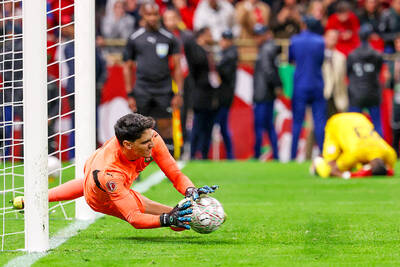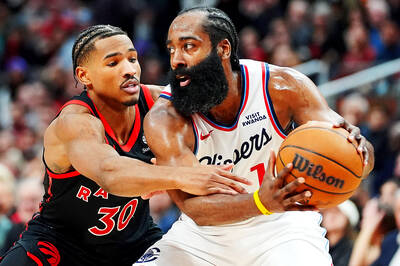It's the moment when World Cup dreams are realized or cruelly shattered.
In a split-second moment, you're either hero or villain.
In polls for worst World Cup penalty miss of all time, Roberto Baggio's ballooned effort in the 1994 final against Brazil is often voted top of the flops.
England's Stuart Pearce and Chris Waddle [against Germany in 1990] and Paul Ince and David Batty [against Argentina in 1998] run a close second.
Some say singer Diana Ross's miss at the 1994 opening ceremony in Chicago was the classic blunder.
But with the aid of science, some say, it's possible to take the perfect penalty and that knowledge will be useful now that the 2006 World Cup has reached the knock-out stages.
So many big matches these days are decided on the 10.97m place kick that sports physicists, psychologists and biomechanicians are often recruited to try to give an edge to striker and keeper.
no-lose situation
Penalties are no-lose situations for the keeper, because almost all of the pressure is on the striker.
Psychologists can enhance this advantage in a number of ways.
One of them is in training keepers in body language. Keepers who are alert to the kicker's eyes, body posture and angle of his feet in the runup can gain as much as half a second in which to move in the right direction.
Scientists at John Moores University in Liverpool showed goalkeepers life-sized video footage of penalties being taken, filmed from the viewpoint of a keeper standing in the center of the goal.
The film was stopped four times during the sequence -- 120 milliseconds before the kick; 40 milliseconds before; at the point of impact; and 40 milliseconds after -- and the goalkeepers were asked at each stage to predict where the ball was being placed.
The researchers found that the biggest clue was the position of the striker's hips just before the strike.
"If the taker's hips are square-on to the goalkeeper in a right-footed kicker, the penalty goes to the right-hand side of the goalkeeper," says the university's Mark Williams.
"If his hips are more `open', or angled away from the goalkeeper, the kick tends to go to the left of the keeper," he said.
But science can also help the penalty-taker, too.
A study in biomechanics carried out at the University of Bath in 2004 determined the maximum reach of a goalie's dive, regardless of his size.
`unsaveable zone'
It showed that, if the keeper stays on his line in accordance with the rules, 28 percent of the goal is an "unsaveable zone" that guarantees a score provided the ball is kicked accurately and with reasonable force.
Even if you can't kick accurately, blasting is still a pretty good option.
"Hit your penalties as hard as possible," advises Kassam. "Research indicates that a penalty struck at more than 20m per second (73kph) stands a greater chance of hitting the back of the net than a slower one, as a goalkeeper has less time to analyze visual clues and react."
Simple psychological tactics can also improve the success rate of a team in the all-important shootouts.
A 2000 study found that if the weakest players take their penalties earliest in the sequence, with the strongest last, there is a big improvement in the team's chances.
According to FIFA statistics, the kicker holds all the cards.
In the history of the tournament, 182 penalties have been awarded with 147 converted or 81 percent.
Thirty-five have been missed with 22 of those saved by the keeper.
That said, there is no substitute for practice.
In the days before computers and penalty specialists, the Hungarian great Ferenc Puskas used the simplest of techniques to ensure that he would slot home a penalty.
He would hang a disc 80cm below the crossbar and aim at it, again, again and again, until he got it right.

Manchester United on Tuesday confirmed Michael Carrick as interim manager until the end of the season, tasking him with leading the Red Devils back into the UEFA Champions League. “Having the responsibility to lead Manchester United is an honor,” said Carrick, 44, who won 12 major trophies in his 12-year playing career at United. The former midfielder previously had an unbeaten three-game stint as caretaker boss at Old Trafford in 2021. Carrick then took on his first permanent managerial role at second-tier Middlesbrough in October 2022 and was sacked in June last year after the club finished 10th in the

Dallas Mavericks rookie Cooper Flagg on Wednesday was ruled out for the second half of their 118-109 loss to the Denver Nuggets after the No. 1 pick sprained his left ankle in the first half. Flagg was called for a foul while defending against Peyton Watson and turned the ankle as he fell to the floor with 6 minutes, 1 second left in the second quarter. Flagg limped to the bench and continued to the locker room, but returned for the final 2 minutes, 35 seconds before the break. The 19-year-old did not come out for the second half before the announcement that

Yassine Bounou on Wednesday saved two penalties, while Youssef en-Nesyri netted the decisive spot-kick as hosts Morocco secured a 4-2 shoot-out victory over Nigeria following a 0-0 draw in a tense Africa Cup of Nations semi-final in Rabat. Morocco, seeking their first continental title in 50 years, are to face 2021 winners Senegal in Sunday’s decider in Rabat, while Nigeria take on Egypt in the third-place playoff tomorrow. The 120 minutes before the shoot-out had few clear-cut chances for either side, but it was Morocco who created more opportunities, although they were denied by some fine saves from Nigeria goalkeeper Stanley Nwabali. Nigeria

James Harden on Friday scored 31 points and came up big in overtime to help the Los Angeles Clippers erase a double-digit deficit on the way to a 121-117 NBA victory over the Toronto Raptors. Harden scored 16 points in the fourth quarter and overtime as the Clippers pushed their wining steak to five games despite the absence of star Kawhi Leonard with a sprained right ankle. The Clippers trailed by 11 entering the fourth quarter, but Harden drilled a pair of free-throws with 1:24 left in regulation to tie it and after misses from both teams, they went to